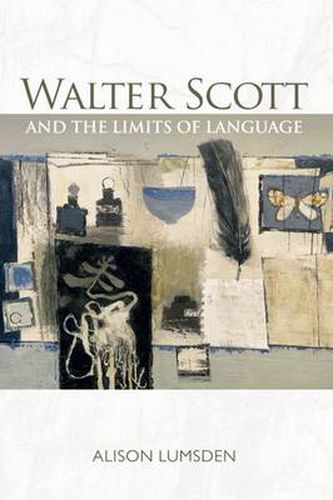Readings Newsletter
Become a Readings Member to make your shopping experience even easier.
Sign in or sign up for free!
You’re not far away from qualifying for FREE standard shipping within Australia
You’ve qualified for FREE standard shipping within Australia
The cart is loading…






The Edinburgh Edition of the Waverley Novels has provided readers with a version of Scott that reveals the full extent of the linguistic richness, diversity and creative playfulness of his fiction. Lumsden’s book builds upon this revitalised version of Scott’s work to suggest that a complex and evolving scepticism towards the communicative capacities of language runs throughout his writing. Bringing to the scholarship of the Edinburgh Edition a critical framework grounded in post-structuralist theory, Lumsden’s study re-examines this scepticism within the historical framework of Scottish Enlightenment thought and the wider context of recent developments in theories of the novel. Structured chronologically, it covers Scott’s output from his early narrative poems until the late, and only recently published, Reliquiae Trotcosienses, exploring the ways in which his scepticism towards language (and the creative potentialities which emerge from this sophisticated awareness) develops and informs his creative practices throughout his enormously influential career. Alison Lumsden was Research Fellow for the Edinburgh Edition of the Waverley Novels from 1991 - 2002 and a General Editor from 2002 until its completion and has edited several volumes of the edition. This book draws on her experience to suggest a reading of Scott that highlights his startlingly contemporary approach to theories of language and the creative implications of this within his work. Key Features * The book’s grounding in the scholarship of the Edinburgh Edition of the Waverley Novels * The range of Scott texts it covers, including the often neglected poetry and the similarly neglected late fiction * The overview of Scott’s pivotal role in the development of the novel form * The illumination of Scott’s scepticism towards linguistic communication, the historical contexts for this and the surprisingly modern readings of Scott that such an understanding implies
$9.00 standard shipping within Australia
FREE standard shipping within Australia for orders over $100.00
Express & International shipping calculated at checkout
The Edinburgh Edition of the Waverley Novels has provided readers with a version of Scott that reveals the full extent of the linguistic richness, diversity and creative playfulness of his fiction. Lumsden’s book builds upon this revitalised version of Scott’s work to suggest that a complex and evolving scepticism towards the communicative capacities of language runs throughout his writing. Bringing to the scholarship of the Edinburgh Edition a critical framework grounded in post-structuralist theory, Lumsden’s study re-examines this scepticism within the historical framework of Scottish Enlightenment thought and the wider context of recent developments in theories of the novel. Structured chronologically, it covers Scott’s output from his early narrative poems until the late, and only recently published, Reliquiae Trotcosienses, exploring the ways in which his scepticism towards language (and the creative potentialities which emerge from this sophisticated awareness) develops and informs his creative practices throughout his enormously influential career. Alison Lumsden was Research Fellow for the Edinburgh Edition of the Waverley Novels from 1991 - 2002 and a General Editor from 2002 until its completion and has edited several volumes of the edition. This book draws on her experience to suggest a reading of Scott that highlights his startlingly contemporary approach to theories of language and the creative implications of this within his work. Key Features * The book’s grounding in the scholarship of the Edinburgh Edition of the Waverley Novels * The range of Scott texts it covers, including the often neglected poetry and the similarly neglected late fiction * The overview of Scott’s pivotal role in the development of the novel form * The illumination of Scott’s scepticism towards linguistic communication, the historical contexts for this and the surprisingly modern readings of Scott that such an understanding implies